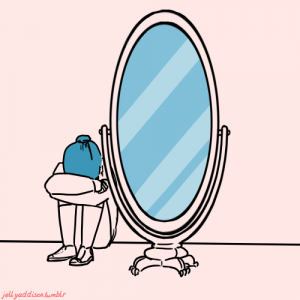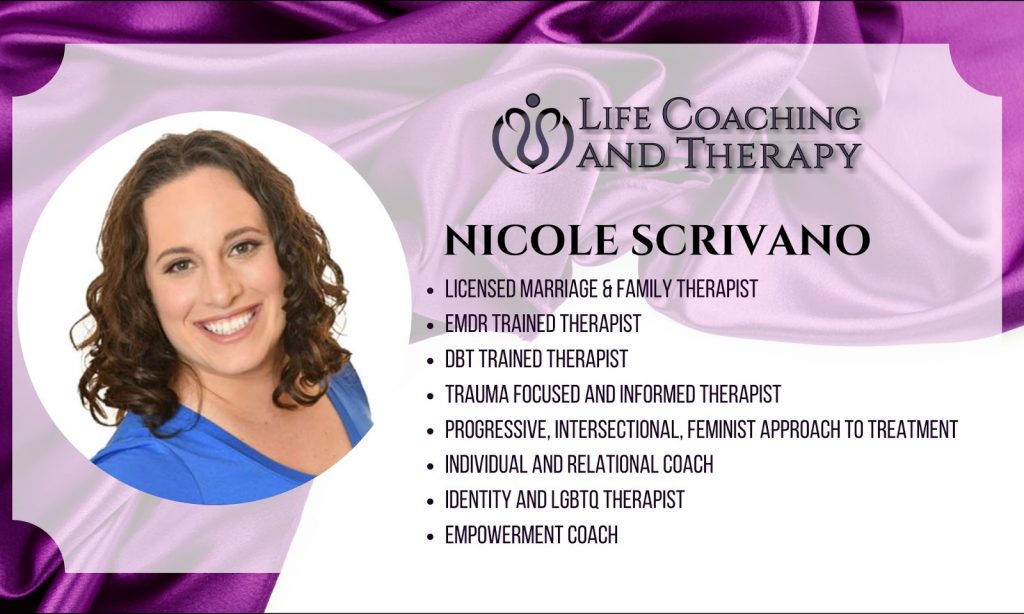11 Signs of Insecurity that Turn Others Off
I’m going to teach you the most common signs of insecurity.
Everyone is insecure about something. No matter how confident you are, there’s always that one thing someone can say that will send you reeling back into past trauma whether all of a sudden you’re back in high school being teased or thrown into a memory of being rejected by a crush.
For most people, building confidence is a lifelong pursuit. We learn, bit by bit, to do things like not be overly self-deprecating, maintain good eye contact, and how to overcome self-doubt. It’s not easy. As the saying goes, nothing worth doing is, right?
The process of building confidence and defeating insecurity means we have to try to take out our insecurities one by one.
There are things you do right now, probably without even knowing it, that turn others off to you. They communicate the wrong message. Getting it right is important, especially if it’s someone you want to turn on! Let’s take a look at 11 signs of insecurity and what you can do to correct them.
1.Body Negativity
Almost everyone has some part of their body they feel insecure about. Many of my female-bodied clients are worried about the shape of their breasts and thighs. There’s so much pressure to look a certain way, it’s no wonder so many of us lack confidence.
We all need to work on being body positive. That means you need to be proud of your body! Your body is part of what makes you who you are. You’ll be surprised how feeling good on the outside can change the way you feel inside.
You can start working toward body positivity by focusing on your strengths. Use affirmations as a way to emphasize your beautiful hair, gorgeous eyes, or some other feature you love.

2.Rejecting Praise
Knowing how to receive a compliment is part of being confident. For some reason, insecure people often try to deflect or dismiss praise. It’s as if you don’t want to believe there’s something praiseworthy about you.
What you think is being humble can be a turn off to others. It’s as if you’re rejecting their compliment or even their attempts to flirt or express interest.
If you find yourself shying away from compliments, focus on changing your response. Start with a simple, “Thank you,” if that’s all you can manage. Another great method is to say thanks and return a compliment.
3.Making a Bad First Impression
Not “caring” about how you come off when you meet people one of the most common signs of insecurity. People who lack confidence often try to mask it with ambivalence. However, it’s a massive turnoff social, professional, and romantic relationships.
People you meet will take it to mean either you’re not confident in yourself or that you simply don’t care. Both aren’t great.
Whether you’re meeting a first date, going for a job interview, or meeting your partner’s family for the first time, put in some effort to communicate confidence in who you are and what you look like.
Wear clothes that fit you – go on YouTube and look up videos on clothes that fit different body shapes. Feeling good is important on a first date. Make it look like you put in a little effort. You want to look like someone who cares.
4.Poor Eye Contact
Poor eye contact is one of the signs of insecurity easiest to spot. It’s hard to disguise your inability to meet someone’s gaze. It may also nonverbally tell someone you’re genuinely interested in that you aren’t. Poor eye contact can also be a sign someone has suffered trauma in the past.
Practicing maintaining eye contact to develop the habit. This is something that can be learned. You can give it a try in front of the mirror or with friends you trust. Just don’t overdo it or you’ll end up scaring people off! It’s a good rule of thumb to hold eye contact for a few seconds and then look away before returning.
5.Automatically Assuming Something Negative
There are enough negative people out there in the world. It’s a turnoff when people always assume the worst. The person you date, people you work with, your friends, and your family want to be surrounded by positive people with bright outlooks.
The people you spend time with are going to have the biggest influence on your life. That means you should be around people who lift you and are striving for good outcomes.
Review conversations you have to analyze whether you were being overly pessimistic. Start correcting negative thoughts in your head, and eventually it will change the way you speak and act.
6.Easily Offended
People who are easily offended are that way because they lack confidence in the face of other people’s opinions. It’s one of the signs of insecurity that is most obvious. People with poor self-image try to avoid attention on their behavior by constantly going on the attack. Either that or they’re overly sensitive to constructive feedback from friends, family, or lovers.
If you find yourself quickly moving into defensive mode, then spend some time reflecting on how you come across. Instead of reacting rashly, instead, ask probing questions to discover how other people feel.
7.Difficulty Talking About Sex
One of the signs of insecurity in a relationship is Discomfort talking about sex. When you lack confidence in something, you’re quick to change the subject or shut down someone’s attempts at digging under the surface. I meet with clients who struggle to talk about sex because they’re unsure of what they want or feel performance anxiety around sex.
To overcome insecurity around talking about sex, try to create conditions where you feel safe discussing intimacy. Removing anything that makes you feel threatened or overwhelmed will help facilitate conversations.
Talking about sex is so important in a successful relationship. You need to be able to express your sexual needs and understand what your partner needs as well.
8.Avoiding Sex
Some people avoid sex altogether to hide their insecurity. They say things like they don’t enjoy sex or it’s not particularly fun for them.
I find that many times this happens because they feel anxiety over their lack of sexual inexperience, or they may have suffered trauma in the past that’s inhibiting their ability to enjoy sex.
If you feel insecure about having sex or feeling turned on by your partner, meeting with a sex therapist can help. I give my clients the psychosexual therapy exercises they use to relax and open the door to enjoy sexual experiences.

9.Being Passive in Bed
Insecure people are often passive in bed. They wait for their partner to make the first move or take the initiative at every turn. Not only is this a turnoff, it’s also no fun!
When insecure people hear that they should be more active in bed, many of them interpret that as their partner saying they should put on a show. Like they’ll only be happy if you install a stripper pole before you have sex the next time.
In reality, your partner likely wants to be equal partners in your sexual relationship. They want you engaged because it communicates to them that you love and desire them.
10.Codependence
Codependence is the result of insecurity and it perpetuates other people’s poor behavior. You make your needs subservient to someone else’s needs and then become resentful.
I work with people to transition their codependent relationship into an interdependent one, where both of you are meeting each other’s needs on equal footing.
11.You Struggle with Trust
Do you sneak looks into your partner’s phone while they’re not looking? Are you suspicious of their relationships with other people? Difficulty trusting people is a major sign of insecurity. It’s you simply yelling that you think you’re not good enough for your partner, so you have to constantly follow-up on their activities. Who did they talk to and where were they?
This can be very trying for any partner in a relationship.
Rather than constantly worry about what your partner is doing and with whom, try to grow your social circle to fill your time with something else. When you pursue your passions, you’ll become more confident and start to realize that anyone you’re with is lucky to have you.
You can get more free content on relationship and sex tips by checking out my Youtube Channel – The Sex Healer.
If you know someone that would benefit from this information, feel free to share it.

Life Coaching and Therapy (LCAT) is a relationship coaching and sex therapy practice that transforms our clients lives through our flexible, multi-technique approach and pleasure-skills training provided by systemically-trained and licensed therapists!
Our team of compassionate, licensed therapists and certified sex therapists help Millennials and Baby Boomers alike who visit us for a variety of relationship, intimacy and sex problems.
LCAT provides on-site appointments, as well as video chat and text therapy programs. For clients hoping to take their intimate lives to the next level through personalized coaching on YOUR terms, learn more about our Text Therapy Program.
Learn more about how LCAT can help improve your life at What We Do.
Call or text us at 203-733-9600 or make an appointment.









